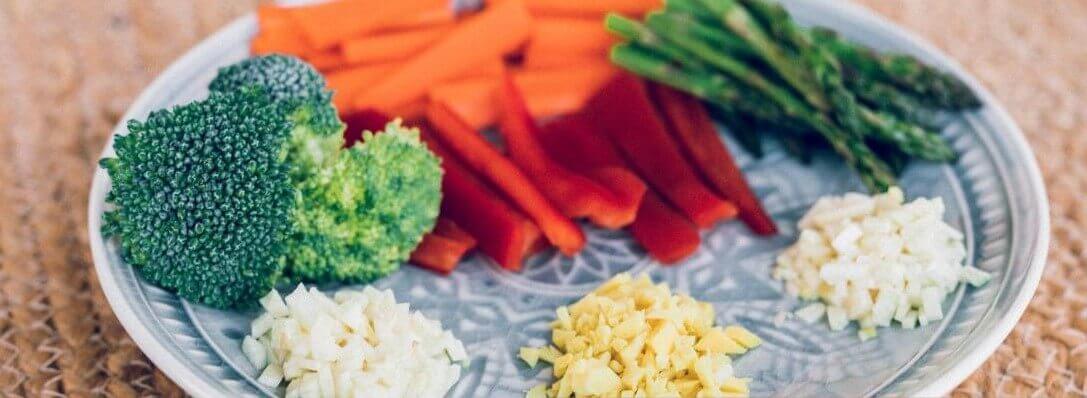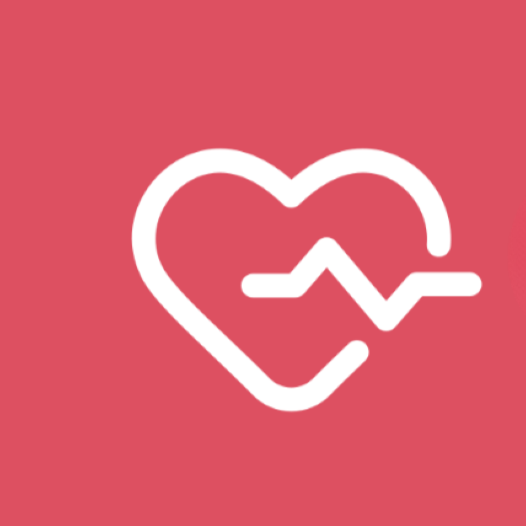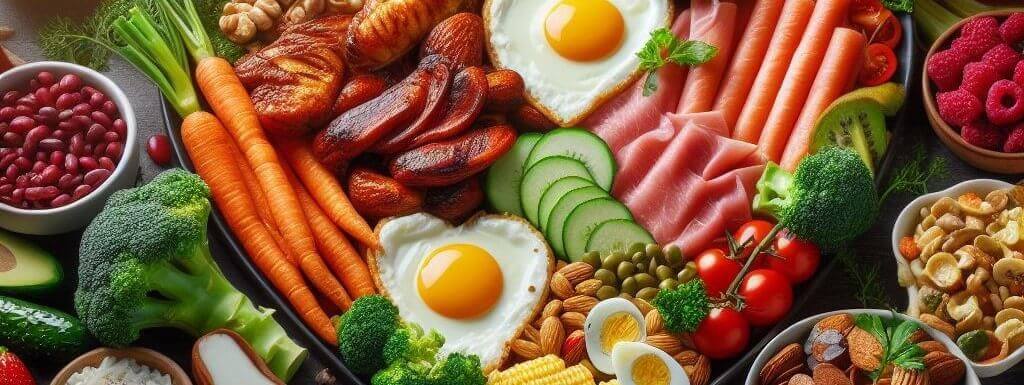After a heart bypass surgery, you’re probably eager to get back on your feet and improve your heart health. The food you eat plays a crucial role not just in your recovery, but also in shaping your long-term well-being. Adjusting your diet after heart bypass surgery is not just about restrictions; it’s about embracing a new way of eating that nourishes and strengthens your heart.
A heart-healthy diet after heart bypass surgery has several objectives. It needs to support the healing process, minimize the risk of complications, and help in managing your weight. This lowers the chances of additional heart issues in the future. Think of food as part of your overall treatment plan, where each meal contributes to your recovery.
Understanding the interplay between diet and heart health is the first step. A diet rich in certain nutrients can help maintain healthy blood pressure, reduce cholesterol levels, and decrease inflammation. Strike a balance between what you enjoy eating and what’s good for your heart, tailoring your diet to fit your individual health needs and preferences.
As you read on, you’ll discover the specific nutrients vital for your heart, along with foods that provide them. This information is the groundwork for your subsequent meal planning and preparation. The goal isn’t simply to outline what you can and can’t eat on your new diet after heart bypass surgery. But, to equip you with the knowledge to make informed choices for a heart-healthy life.
Check out this other post regarding your diet, A Heart Healthy Diet Includes What?
Crafting Your Post-Bypass Plate: Essential Nutrients and Foods

After a heart bypass surgery, understanding the types of foods that benefit your heart can make a significant difference in your recovery and ongoing health. Your heart requires a variety of key nutrients to function optimally, and your diet should be tailored to meet these needs while also being enjoyable and sustainable.
Fiber is a heart hero. High-fiber foods, like whole grains, fruits, and vegetables, can help reduce cholesterol levels and improve heart health. Omega-3 fatty acids, abundant in fish like salmon and trout, play a vital role in maintaining heart rhythm and lowering blood pressure. Lean proteins from poultry and plant-based sources aid in repair and maintenance of bodily tissues without overburdening your heart.
Incorporate colorful fruits and vegetables in your meals; they are not only visually appealing but packed with antioxidants and vitamins essential for your heart’s recovery. Opt for whole grains over refined carbohydrates to maintain steady blood sugar levels and satiety. Nuts, seeds, and legumes are great sources of non-animal protein and heart-friendly fats.
It’s equally important to recognize foods that should be avoided or limited. High sodium foods, such as processed snacks, canned soups, and fast food, can lead to high blood pressure, a risk factor for heart disease. Saturated and trans fats found in fatty meats, full-fat dairy products, and some baked goods should be consumed in moderation to keep your cholesterol in check.
Becoming a savvy shopper can empower your heart-healthy journey. Get in the habit of reading food labels to identify nutrient-dense foods and be mindful of portion sizes. Choosing ingredients with unsaturated fats, low sodium, and no added sugars will steer your diet in the right direction.
As you master the nuances of this new way of eating, you’ll find that a heart-healthy diet doesn’t mean sacrificing flavor or satisfaction. Seasoning food with herbs and spices rather than salt, cooking with healthy oils like olive or canola oil, and experimenting with new recipes can keep your taste buds happy as your heart grows stronger.
Designing a Balanced Eating Plan: Meal Planning and Preparation

Diet after heart bypass surgery, recovery, and long-term wellness hinge significantly on eating right. A balanced eating plan is paramount. It’s more than just picking heart-healthy foods; it requires smart meal planning and preparation.
Portion control is not only about reducing the size of what you eat. It’s about ensuring you get all the nutrients your body needs without overdoing calories or fat. A simple visual guide can help: visualize your plate divided into four quarters. Fill two quarters with a variety of fruits and vegetables, one with lean proteins, and the last with whole grains.
Let’s break down what a balanced eating plan could look like across the day. For breakfast, think about oatmeal topped with berries and a handful of nuts. For lunch, a colorful salad with spinach, chickpeas, avocado, and a side of quinoa. Dinner might be grilled salmon with steamed broccoli and a sweet potato.
Meal prep can be a life-saver. Dedicate a day to prep meals for the week. Cook grains in bulk. Cut veggies for snacks. Grill or bake several servings of protein to use over a few days. And if you need inspiration or help, consider meal planning apps or services tailored for heart-healthy diets.
In the upcoming section, I’ll share some practical tips on how to navigate dining at restaurants and attending social events without straying from your diet after heart bypass surgery.
Navigating Challenges: Eating Out and Social Events

I know eating out can be one of the bigger hurdles when you’re committed to a heart-healthy diet. Restaurants often present a menu full of enticing dishes that aren’t always in line with post-bypass nutritional guidelines. Here’s a bit of advice: always start by scanning the menu for the lightest dishes. Look for keywords like ‘grilled,’ ‘steamed,’ or ‘baked,’ and don’t hesitate to ask servers to modify your meal to meet your needs. They can often substitute sides, reduce portion sizes, or eliminate high-sodium sauces.
Social events pose another challenge. It’s natural to want to partake in the celebration without fretting over food. Prior to the event, I suggest eating a small, healthy snack to curb your appetite. This way, you’re not as tempted by the spread of potentially unhealthy options. And if you’re comfortable with it, bring a dish to share that you know fits into your heart-healthy plan.
Constant vigilance at every meal might seem imposing, but with practice, you’ll start to do this instinctively. It’s also worth mentioning that it’s not just about the food at these events. Focus on the social interaction and the pleasure of simply being with others. Making dietary adjustments doesn’t mean isolating yourself or missing out on these important moments.
When it comes to snacks, preparation is key. Keep a stash of healthy options like fresh fruit, nuts, or whole-grain crackers on hand. These quick bites can offer a crunch or a touch of sweetness without the downsides of processed snacks. And remember: balance is everything. It’s okay to indulge on rare occasions, just do so sparingly and plan accordingly.
Surrounding Yourself with Support: Resources and Guidance for Your Diet Journey

I can’t stress enough the importance of having a strong support system as you navigate your new dietary landscape after heart bypass surgery. Regular consultations with a dietitian or nutritionist are invaluable. These experts can offer personalized advice, help you fine-tune your eating plan, and provide strategies to stick to it.
Consider joining support groups as well. Connecting with others who are facing similar challenges can be both comforting and enlightening. In these groups, you can share experiences, recipes, and encouragement, helping you feel less isolated in your journey.
Don’t underestimate the wealth of educational resources available to you. Books, websites, and even mobile apps can provide recipe ideas, track your nutritional intake, and help you stay on course with your heart-healthy diet goals.
And, of course, remember to celebrate your progress. Whether it’s hitting a milestone in your recovery or sticking to your diet for a full month, acknowledging your successes is crucial. It’s a journey that requires patience and perseverance, and each small victory is a step towards a healthier heart.
Questions and Comments Welcome Below!

